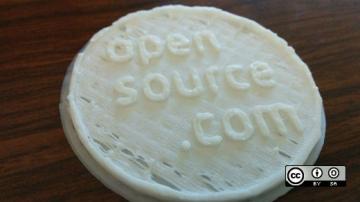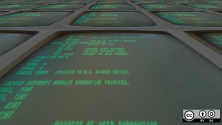As we ring in a new year that many hope will look a lot different than 2020, I propose we try to keep a few things that difficult year gave us:
- Recognition of back-breaking paces we may be engaged in and the ability to step back and slow down
- Gratefulness for family, friends, and hobbies that bring us joy and give meaning to our lives
- Enthusiasm to go after our personal and professional dreams
I chatted with a few of our friends in open source—some leaders of communities and some individual contributors—and asked them what they learned. Please add your own in the comments.
5 reflections from the community
"This year, entire industries went to basically a standstill. Most of the tech industry, though, has had the opposite experience. Demand for cloud, hardware, and open source solutions to remote IT problems grew at an astronomical rate. I am grateful for the job security, but I know there is also a very real risk to our well-being, and that is pushing too hard for too long. Growth is not sustainable when it risks breaking down our own personal well-being and relationships! The first thing I am doing in 2021 is organizing my time to devote more to healthy non-work-related hobbies, exercise, and family. As we slowly get back into some semblance of normality, let's pursue healthy goals—like getting a little extra sleep and turning off our screens for some set time each day!" — Jeff Geerling, author of Ansible for DevOps and Ansible for Kubernetes
"A lot of people talk about wanting to return to normal, but before we jump back into the old ways of doing things, let's take a step back and consider what we should strive to keep in terms of work-life balance. Gone are the days of only being home long enough to unpack and repack a suitcase for the next business trip. Perhaps many of us don’t need to resume our road-warrior ways. I urge everyone to at least consider whether you really need to attend that meeting in person and make some thoughtful decisions as you start back up. Working during your optimal creative hours may not coincide with "normal business hours" or your coworker's best hours, and many people were just as productive working split shifts or four-day workweeks. We don’t need to go back to 50 or 60-hour workweeks. In terms of working from home, we all felt the pain that veteran remote workers have experienced for years, and we found ways to work through it and figure things out. As some of us return to the office, keep those practices of remote celebrations and asynchronous communications in place to help those who remain remote feel included." — Dawn Parzych, a developer advocate
"This has been the most interesting and challenging year I have ever experienced. While missing close contact with family, tools like Google Meet, Jitsi, and Zoom enable us to keep in touch in powerful and flexible ways. Since the COVID-19 pandemic started, we had been keeping in touch with family using Zoom and Jitsi. My mom turned 100 years-old in October, and we were able to attend her virtual birthday party from over 400 miles away; we live in Raleigh, NC, and she lived with my brother and his family in Columbus, OH. Mom died in November, so her birthday was the last time I saw her and that was only possible with today's technology. I have also found lots of opportunities to learn many new things. My church needed to create and post audio versions of the services, so I have learned to use Audacity to take audio files from different sources and blend them together into a single file that can be streamed from the church's server. I am just now learning OBS studio so we can live stream our services with only a couple of participants present in person." — David Both, a Linux trainer, writer, and speaker
"Unlike traditional goods and services, software has a very low marginal cost. Unlike parts in a supply chain for a car manufacturer, there is no cost to storing the supply of pieces and parts. This leads to the development of software technology that is beyond the wildest dreams of "just in time" manufacturers. It essentially creates an overflow of new technology that cannot be absorbed fast enough downstream. This puts pressure on development and operations teams—The Great Race toward Continuous Adoption— and creates a continuous source of stress. The end of the year is a good time to shut down the CI/CD system, cease to continually adopt new technology, and slow down. It's a good time to be grateful for family, friends, and spend some time doing hobbies, maybe even with close family. Sometimes you need to slow down and just think. Think about the future, be creative, decide what your personal and professional dreams are. I think it really takes downtime for these dreams to form naturally. I encourage everyone to do this during the upcoming holidays." — Scott McCarty, a container nerd and product manager
"I know it's been a challenging year for us all, but I see a bright side. On a personal level, I've seen my friends and family more frequently in 2020 than in years past. I look at it this way: Before March 2020, I saw a few friends fairly regularly - we'd get together for brunch or just hang out. I saw most of my other friends at parties or other events. My side of the family lives out of state, so I'd only get to see them when my wife and I planned a vacation to see them. But after the pandemic, video meetings suddenly became a thing. Sure, we had Google Hangouts or other video meetings before that, but we just never used them. How frequently did you use video meetings in 2019, other than for work meetings? If you're like me, you used video meetings only for work stuff. So this year, I've been able to get together with friends and family on a more regular basis through video meetings. We'll set up a BlueJeans meeting or a Zoom meeting and just hang out for an hour. I've even started doing regular video get-togethers with other open source developers. It's a great way to stay connected with people. And that's one thing I'd like to keep as we look ahead to a New Year in 2021." — Jim Hall, a professor and the founder of FreeDOS
Your daily source of open source
We welcome you. Become a reader, continue reading, share us with your friends and family. And if you're interested in joining our community of writers you can submit an article for review by our editorial team. We offer copy editing services and work closely with you to craft and publish your article. Find out more on our How to write for us page. We have tons of information there to help you get started, including what to write about, who our audience is, a style guide, as well as the best ways to contact us via our webform or email address. Here are 10 favorite writing topics for our readers:
End-of-year 2020 stats
Opensource.com ended the year with 3 million monthly reads, 1.9 million monthly unique visitors, and 26 Correspondents (and many more writers who achieved Contributor Club status). Check out our handy FAQs.








4 Comments